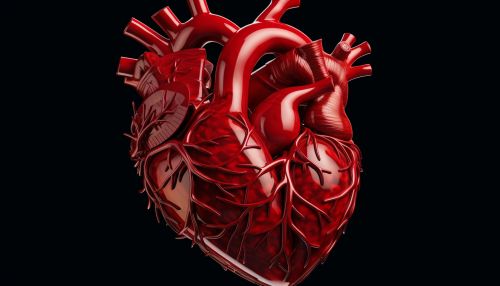Myocarditis
Introduction
Myocarditis is an inflammatory disease of the myocardium, the muscular tissue of the heart. It can result in a variety of clinical manifestations, ranging from mild symptoms to severe heart failure or sudden cardiac death. The condition is usually caused by viral infections, but can also be triggered by a wide range of other factors including bacterial infections, certain medications, and autoimmune diseases.
Etiology
The most common cause of myocarditis is a viral infection, with Coxsackie B viruses being the most frequently implicated. Other viruses that can cause myocarditis include influenza, human immunodeficiency virus, and hepatitis C. Bacterial infections, such as those caused by streptococcal bacteria, can also lead to myocarditis, although this is less common.


In addition to infectious causes, myocarditis can also be caused by certain medications, such as antibiotics like penicillin and sulfonamides, as well as some anti-inflammatory drugs and medications used to treat high blood pressure. Certain illicit drugs, such as cocaine, can also cause myocarditis.
Autoimmune diseases, where the body's immune system mistakenly attacks its own tissues, can also lead to myocarditis. These include conditions like systemic lupus erythematosus and rheumatoid arthritis.
Pathophysiology
In myocarditis, the inflammation of the myocardium can lead to a variety of changes in the heart's structure and function. These changes can include myocardial cell death, fibrosis (scarring), and changes in the heart's electrical system, which can lead to arrhythmias (abnormal heart rhythms).
The exact pathophysiological mechanisms involved in myocarditis can vary depending on the underlying cause. For example, in viral myocarditis, the virus can directly infect and damage the myocardial cells. In addition, the body's immune response to the viral infection can also cause damage to the heart tissue.
In drug-induced myocarditis, the medication can cause a hypersensitivity reaction, leading to inflammation and damage to the heart muscle. In autoimmune myocarditis, the body's immune system mistakenly attacks the heart muscle, leading to inflammation and damage.
Clinical Manifestations
The clinical manifestations of myocarditis can vary widely, ranging from mild symptoms to severe heart failure or sudden cardiac death. Some people with myocarditis may have no symptoms at all, especially in the early stages of the disease.
Common symptoms of myocarditis can include fatigue, shortness of breath, and chest pain. Other symptoms can include palpitations (a sensation of a rapid or irregular heartbeat), lightheadedness, and fainting.
In severe cases, myocarditis can lead to heart failure, a condition where the heart is unable to pump enough blood to meet the body's needs. Symptoms of heart failure can include severe shortness of breath, swelling in the legs and ankles, and rapid weight gain due to fluid retention.
Diagnosis
The diagnosis of myocarditis can be challenging, as the symptoms can be nonspecific and can mimic other conditions. The diagnosis is typically based on a combination of clinical symptoms, laboratory tests, imaging studies, and sometimes a biopsy of the heart muscle.
Laboratory tests can include blood tests to check for signs of inflammation and damage to the heart muscle, such as elevated levels of cardiac enzymes. Viral serology tests can be used to identify a viral infection.
Imaging studies can include an echocardiogram, which uses ultrasound to create images of the heart, and a cardiac MRI, which can provide detailed images of the heart and can help to identify inflammation and damage to the heart muscle.
In some cases, a biopsy of the heart muscle may be performed to confirm the diagnosis. This involves taking a small sample of heart tissue, usually through a catheter inserted into a vein in the neck or groin, and examining it under a microscope.
Treatment
The treatment of myocarditis depends on the underlying cause and the severity of the symptoms. In mild cases, treatment may simply involve rest and monitoring. In more severe cases, treatment can include medications to reduce inflammation and treat heart failure, as well as interventions to manage arrhythmias.
In cases of viral myocarditis, there is currently no specific antiviral treatment, and management typically involves supportive care and treatment of symptoms. In cases of bacterial myocarditis, antibiotics can be used to treat the underlying infection.
In cases of drug-induced or autoimmune myocarditis, treatment can involve discontinuing the offending medication or treating the underlying autoimmune disease, respectively.
In severe cases, where there is significant heart failure or life-threatening arrhythmias, more aggressive interventions may be required. These can include the use of mechanical devices to support the heart, or in some cases, heart transplantation.
Prognosis
The prognosis of myocarditis can vary widely, depending on the underlying cause and the severity of the disease. Some people with mild myocarditis may recover completely with no lasting effects, while others may develop chronic heart disease or heart failure.
In some cases, myocarditis can lead to sudden cardiac death, especially in young adults. This is usually due to arrhythmias caused by the inflammation and damage to the heart muscle.
